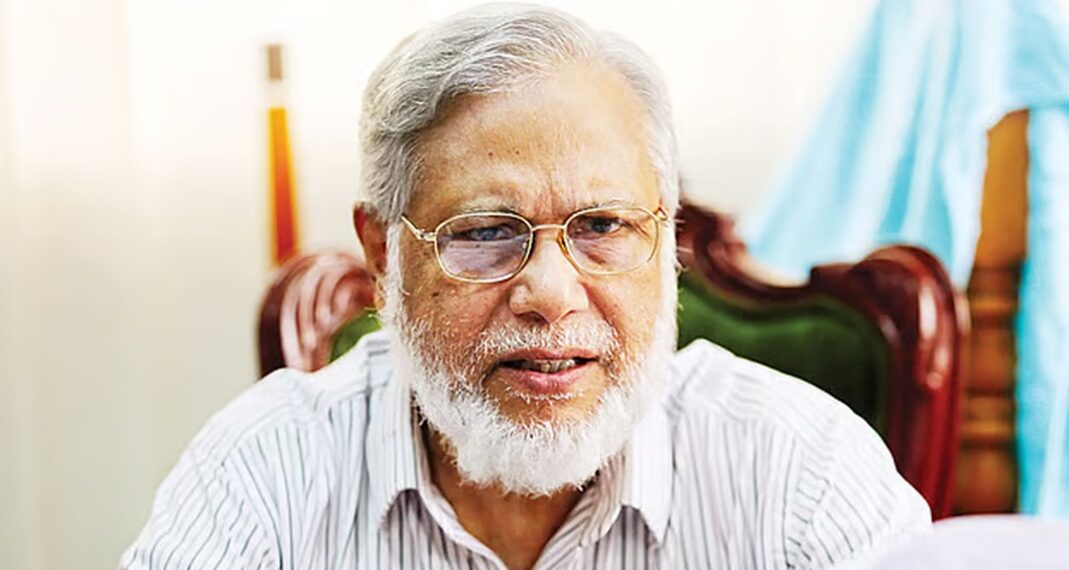Dhaka: Former Chief Justice of Bangladesh, A.B.M. Khairul Haque, was arrested on Thursday morning from his residence in Dhanmondi, Dhaka, as part of a widening crackdown targeting officials linked to the previous Awami League government.
According to local reports citing the Dhaka Metropolitan Police’s Detective Branch, Haque was taken into custody shortly after 8 am and transported to the DB office for questioning. However, authorities have yet to provide specific details about the charges or the investigation against him.
“We will disclose more information once the inquiry progresses,” said Mohammad Nasirul Islam, Joint Commissioner of the Detective Branch, in a statement to Jugantor.
Haque’s arrest comes amid a wave of detentions involving individuals associated with the former Sheikh Hasina administration.
The transitional government, led by Nobel laureate Muhammad Yunus, has drawn criticism for what is being widely viewed as a campaign to dismantle the Awami League’s institutional influence.
Appointed as Bangladesh’s 19th Chief Justice in September 2010, Haque served until May 2011.
He was later named chairman of the Law Commission in 2013 under Hasina’s government and is believed to have continued in the role through multiple reappointments.
He resigned from the position on August 13, 2024—just days after Hasina’s ouster in the wake of mass student-led protests.
Pressure had been mounting on the judiciary in recent months. The Nationalist Lawyers’ Forum, a group aligned with opposition interests, recently held a press conference in Dhaka calling for Haque’s prosecution.
They accused him of playing a key role in undermining the judiciary and democratic framework, particularly citing his controversial 2011 verdict that declared the caretaker government system unconstitutional.
While at least two cases were reportedly filed against Haque following the formation of the interim regime, one was dismissed by a Dhaka Metropolitan Magistrate in August last year due to lack of merit.
Political analysts view the former Chief Justice’s arrest as part of a broader purge being carried out by the Yunus-led government, which has already brought cases against Sheikh Hasina, her allies, and officials from her administration.
Many of these charges are perceived as politically motivated.
Hasina’s abrupt removal from office in August 2024 after widespread unrest marked a turning point in Bangladesh’s political trajectory, with many observers raising concerns over the erosion of democratic norms under the current interim leadership.















